Laminated Souls offer simplicity, nostalgia
Artist says we are living in a world of transition where change has a positive and negative aspect
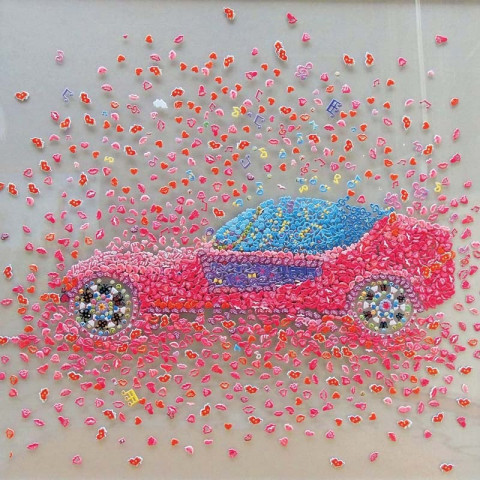
Visual illustrations on display at the exhibition. photos: express
Imran Hunzai’s work created as sticker collage on acrylic sheet represents his nostalgia for simplicity and beauty of the 70s compared to an increasingly automated and chaotic lifestyle of today. His work stems from a commentary on drastically changed and rather ridiculous lifestyle that has become the norm.
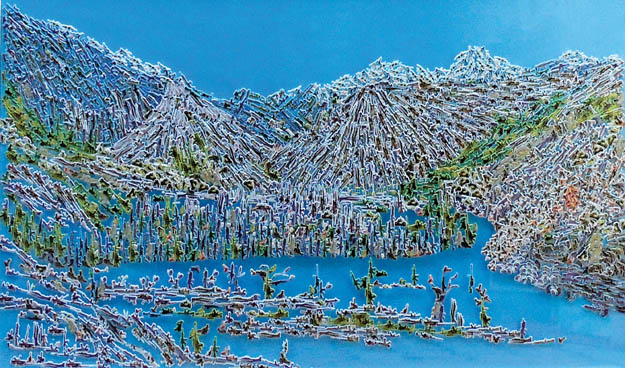
Speaking on the conceptual basis for his work, Hunzai says that we are living in a world of transition where everything is transforming and this change has both positive and negative aspects.
This Pakistani artist's futuristic depiction will blow you away
“We, the humans, adapt things without being aware of the consequences but information bombarded everywhere is not all healthy. Similarly objects we are using will be outdated in a month or two and will end up in a junkyard,” he says.
He adds that same is the moral situation and social standards of a human being where personalities and characters are adapted in accordance to situations.
Hunzai says that since he belongs to the northern areas of the country, he has spent his childhood days in an ideal context where grandparents told stories for moral lessons, with fresh air to breathe.
“I had to help my parents in irrigation, construction, harvesting and most of all I lived an organic life in the mountains encircling the valley,” he adds.
According to the artist, during mid-70s a significant change in the lifestyle came when the Silk Route was converted into the Karakorum Highway.
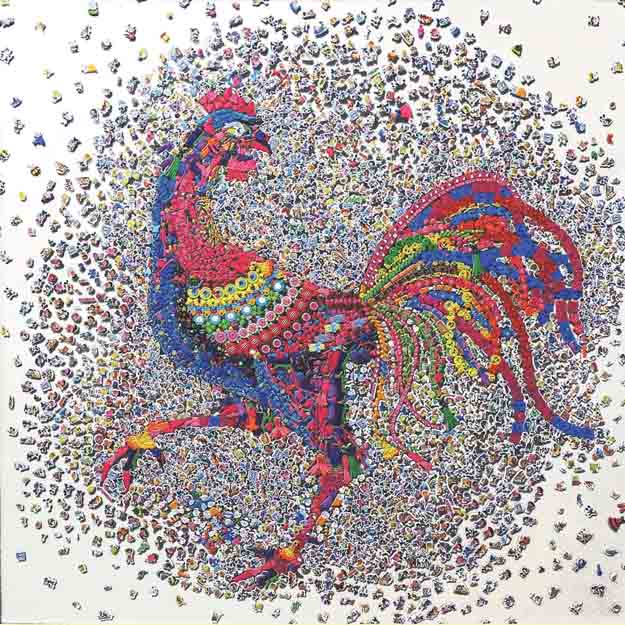
For example, people stopped producing cloth and started buying it from shops, they also started selling organic food to buy inorganic ones, Hunzai says.
Artists paint moods and architecture on canvas
“I still remember there were only a few ‘prominent’ houses painted with white lime in the valley, that was adopted by others quickly just to make their homes look beautiful without knowing the worth and beauty of their mud, stone and wooden houses. It is human nature to adopt change, but intelligence demands to understand long-term effects, which unfortunately lacks in the present world,” he adds.
The artist is of the view that our children have characteristics of cartoons they watch, as parents of today do not have time to tell them stories personally.
Hunzai says that his work is a response to situations, where appearance and representation is coating the social, moral norms and responsibilities.
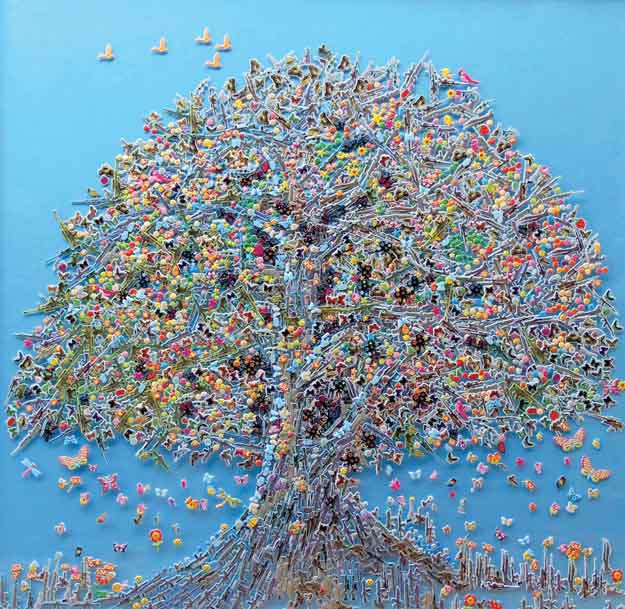
Commenting on the artist’s work, curator Irfan Gul says that late seventies was the time when all we had was one channel on the TV and dinner was served before 8pm, for that was the most awaited time to watch the brilliance of acting and drama.
“Be it making a tree house or collecting the empty matchboxes for various self-created games and activities, regardless of what the weather was like- afternoons for kids were to explore what their creative genius would suggest,” Irfan says.
In the long summer days, ladies used to get together and convert rags and leftovers into beautifully crafted objects of household, he adds.
According to Irfan, as things change, life changes and we have become walking zombies due to gadgets.
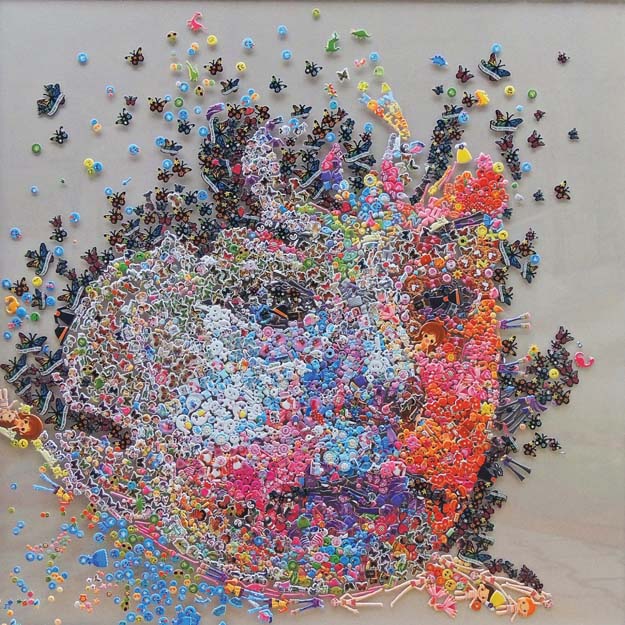
Born in 1979, Imran Ullah Hunzai has witnessed this transformation of human priorities, values, behaviours and actions. His work talks about the choices that we make for life in the techno world, Irfan adds.
Hunzai graduated in Fine Arts from National College of Arts, Lahore in 2006 and is currently an Assistant Professor at NUST, Islamabad.
Published in The Express Tribune, August 21st, 2017.



















COMMENTS
Comments are moderated and generally will be posted if they are on-topic and not abusive.
For more information, please see our Comments FAQ